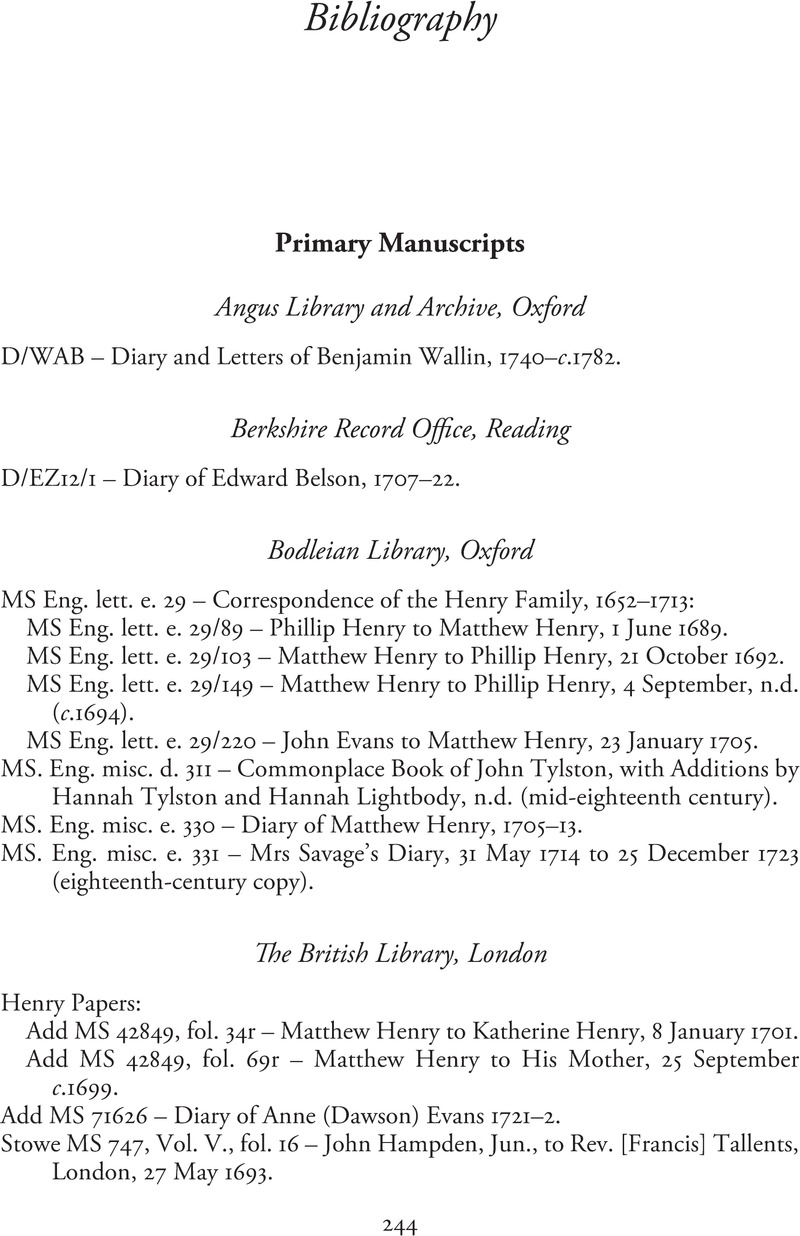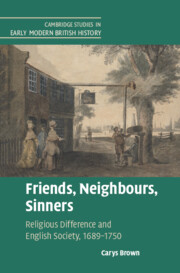Book contents
- Friends, Neighbours, Sinners
- Cambridge Studies in Early Modern British History
- Friends, Neighbours, Sinners
- Copyright page
- Contents
- Figures
- Acknowledgements
- Note on the Text
- Abbreviations
- Introduction
- Chapter 1 Reframing Religious Difference
- Chapter 2 Public Religion
- Chapter 3 Politeness and Hypocrisy
- Chapter 4 Drinking, Dancing, Talking
- Chapter 5 Neighbours, Friends, Company
- Conclusion
- Bibliography
- Index
- References
Bibliography
Published online by Cambridge University Press: 21 July 2022
- Friends, Neighbours, Sinners
- Cambridge Studies in Early Modern British History
- Friends, Neighbours, Sinners
- Copyright page
- Contents
- Figures
- Acknowledgements
- Note on the Text
- Abbreviations
- Introduction
- Chapter 1 Reframing Religious Difference
- Chapter 2 Public Religion
- Chapter 3 Politeness and Hypocrisy
- Chapter 4 Drinking, Dancing, Talking
- Chapter 5 Neighbours, Friends, Company
- Conclusion
- Bibliography
- Index
- References
Summary

- Type
- Chapter
- Information
- Friends, Neighbours, SinnersReligious Difference and English Society, 1689–1750, pp. 244 - 279Publisher: Cambridge University PressPrint publication year: 2022

